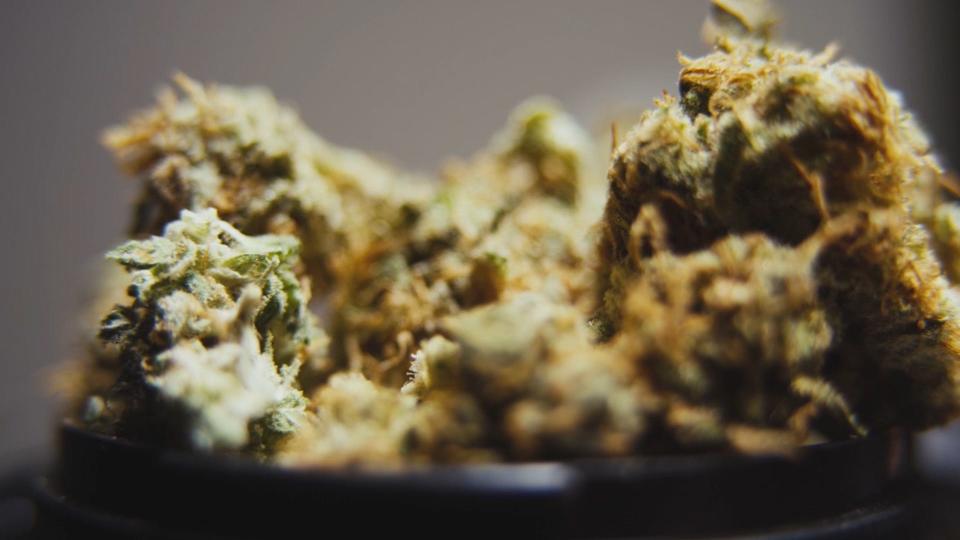Legal weed in NJ: High-potency THC products are a growing public health concern | Opinion
For many years, the illicit marijuana industry in the United States was made up of virtually one product: dried flower buds that could be smoked in various ways and produced a similar effect for their users.
As the use and development of new technology has changed the way we live our lives in endless ways, the same rings true for the consumption of tetrahydrocannabinol, the psychoactive compound in weed that makes users feel high.
The rapidly growing popularity of THC concentrates commonly found in products like vape pens and edibles, the preferred route of consumption for young users, has introduced high-potency products into the mainstream, with dispensaries attributing an exceedingly large percentage of their sales to oils and cannabis-infused food products. In Colorado, for example, the market share for concentrates alone has nearly tripled since cannabis retail sales began in 2014.
Until the late '90s, the potency of dried cannabis flower, the kind smoked by past generations that produced a mild buzz, averaged less than 5% THC. It currently sits around 15%, according to the Drug Enforcement Agency, and products that contain THC concentrates are regularly found to average upward of 54% to 69%, with many found to exceed 80% THC.
While contemporary wisdom evolves over time, such as the public perception of risk decreasing as cannabis legalization for adult use rolls out across the U.S., now up to 19 states and counting, the science continues to show us there are still adverse health effects that need to be considered in regard to cannabis use, especially for our youth and adolescents.

Because our brains aren’t fully developed until roughly the age of 25, youth and young adults who consume THC products are at a far greater risk to develop a cannabis use disorder, and are more likely to be diagnosed with mental health issues such as anxiety and depression.
Most concerningly, regular exposure to high-potency THC products for a wide range of ages has been linked to a fivefold increase in psychotic disorders. Since we know that regular cannabis consumption has an exacerbated negative impact on young users, the lack of research on youth use of these relatively new high-potency THC products, which carry their own additional risks, is cause for concern and certainly merits further study.
Vermont has already taken a first step in mitigating access to high-potency THC products by implementing a potency limit across the state in all cannabis concentrates to 60% THC — it also has in place a 30% THC cap on dried cannabis flower.
The 2021 CREAMM Act, the bill passed legalizing adult use cannabis in NJ, also created the Cannabis Regulatory Commission (CRC), a committee with broad powers to establish rules and regulations for this emerging marketplace — including the authority to set potency limits. However, aside from requiring warning labels on products containing over 40% THC, the CRC has not taken any steps to cap potency limits on products that will be widely sold to the public throughout the state.
When looking at local and state policy through a public health lens, we must center the rules communities obey with a proactive approach intended to prevent harmful health outcomes, especially regarding our children, as was done to successfully combat high youth rates of tobacco and alcohol use in the '90s and '00s.
While parents should be aware of the risks associated with adolescent cannabis use and the additional harms attached to increasingly available high-potency THC products, the burden of policy change falls on concerned citizens to call on local and state officials to impose such limits on cannabis retailers in New Jersey.
The CRC has published proposed new rules for New Jersey’s legal adult-use cannabis market and is accepting written public comment through September 30. To review the proposal and submit comments, visit: nj.gov/cannabis/resources/cannabis-laws.
Local and statewide efforts are underway to educate everyone from parents and community members to school officials on the risks associated with cannabis use and youth access as legalization rolls out across the state. To learn more about these efforts, visit: njpn.org/impact-nj.

Andrea Zapcic is prevention director of the New Jersey Prevention Network in Tinton Falls.
This article originally appeared on NorthJersey.com: NJ legal weed: High-potentcy THC products are a public health concern

